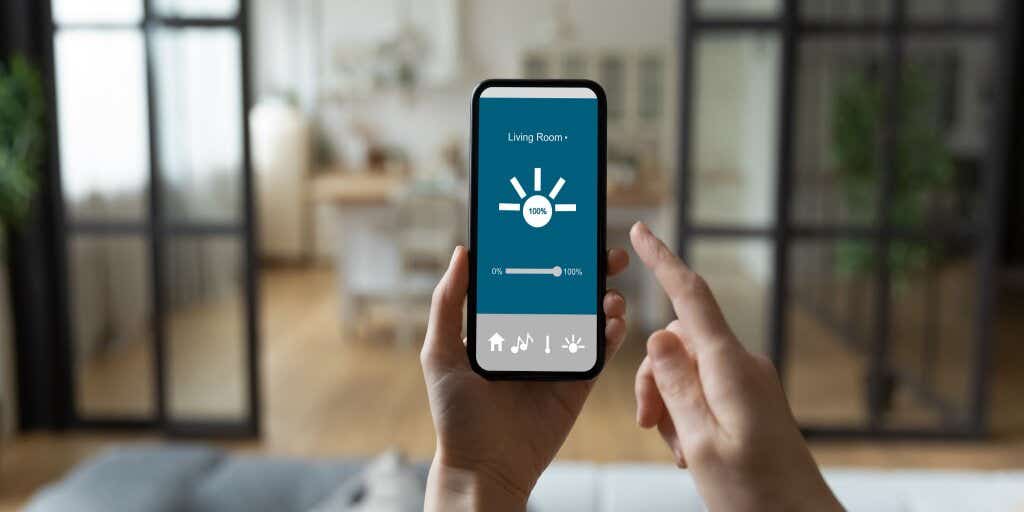Smart home gadgets are gaining popularity — from home assistants such as Google Home and Amazon Echo to smart thermostats and app-controlled lighting.
With smart home insurance, you can combine this technology with traditional insurance to protect your home. It can alert you to risks such as water or smoke in your home and could reduce the damage to your home and the cost of your insurance premiums.
What is smart home insurance?
When it comes to insurance policies, the amount you pay depends on the risk you present to your insurer. Households that are less likely to make a claim are often rewarded with more affordable insurance policies. In the case of home insurance, it makes sense that improving security and preventing accidents should make you less likely to claim. Some insurers take into account that you have extra devices such as security cameras fitted, while others do not. You may need to speak to individual insurers to find out what their policy is.
What does smart home insurance do to protect my home?
Smart devices such as cameras, motion sensors and leak detectors are designed to protect your home by improving security and offering early warning capabilities and protection. They can warn against accidents such as fires, smoke and water leaks - all common reasons for making home insurance claims. If the worst does happen, you may be able to act early so that you do not need to make a large claim on your home insurance policy.
This will mean that when you come to renew your insurance policy, you do not experience a hike in premiums because you have not had to make a huge claim.

Is smart home insurance widely available?
At the moment, insurance companies are starting to look at how installing smart technology in the home might lower risk, but it is not currently standard on traditional insurance policies.
The first company to offer ‘prevention first, insurance just in case’ cover in the UK is Neos, which is owned by insurance company Aviva.
Neos provides security devices as part of its insurance policy, and you can install them in your house in order to protect it.
How does Neos work?
Neos is an innovative home insurer that includes smart technology to protect your home as part of its home insurance cover.
Neos insurance policies include up to nine smart devices to help protect your home, including an HD camera and flood, smoke, door and motion sensors. You can choose from three levels of cover basic cover to fully comprehensive cover.
As well as smart devices, Neos policies also come with a connected app so you can actively protect your home from your phone. The connected app can give you peace of mind when you are away from home as you will be alerted in real-time if any of the sensors are activated. You can keep an eye on your home with the app 24/7, from anywhere in the world.
The three levels of cover are Good’, ‘Better’ or ‘Best’ packages. When you sign up, you will receive up to nine wireless smart home sensors (including a wireless indoor camera) and the Neos app – at no extra cost as part of your insurance policy – to detect problems in your home sooner.
The app sends you real-time alerts if the devices detect leaks, fires or intruders. You can even use Neos to arrange for tradesmen to come out to your home and fix the problem.
The idea is that if you were to have a problem with a fire or freezing pipes, the earlier you know about the problem and take steps to fix it, the lower your repair bill and insurance claim will be.
What other smart technology options are there?
Ring – which is connected to your home doorbell - and Google Nest offer security solutions for your home and allow you to monitor what is going on even if you are away from home. They are not connected to a specific insurer but may reduce your risk of damage or theft.
Samsung SmartThings enables you to manage your home technology devices from anywhere, and can connect to apps such as Amazon, Google, and Ring. and more.
Bear in mind that wifi access is needed in order for the app to work. Although you can view your home security activity from anywhere, you will need a good and reliable internet connection at your home and wherever you happen to be when you are using the app.
What smart technology hardware can I install in my home?
There are a number of different security devices you can install in your home including video cameras, smart locks, leak detectors, motion detectors and smart lights.
Whatever system you decide to install, you need to check first that it is compatible with your phone and that you have a good internet connection in order for it to work.
Why does smart technology help with risk?
The combination of the smart devices and connected app can help you to detect the problems that lead to some of the most common home insurance claims, including escape of water, theft and fire. Even if there’s nothing you can do to prevent these scenarios, the smart devices can help alert you to them sooner, so you can take action and prevent further damage.
Imagine if you were out of the house at work or even away for a few days and there was a water leak — it is unlikely you’d know about it until you get home and by then the issue could have spread and caused irreparable damage. With an app like Neos, you can get notified and be able to take action straight away.
What type of cover is available with smart home insurance?
Just like traditional home insurance, you can choose from buildings insurance, contents insurance, contents insurance for tenants, or combined cover to suit your needs, whether you’re a homeowner or a renter. If you are renting, you should check with your landlord to see if they are happy for you to have Neos installed. Your landlord should take care of buildings insurance.
Smart home insurance is not just those who want the latest gadgets but those who care about security and making sure everything is working right at home — all backed up with the safety net of a comprehensive home insurance policy.
Is it worth getting smart home insurance?
At present, many traditional insurers do not give discounts on your insurance if you have smart technology devices installed at your home, favouring instead more traditional items such as a burglar alarm, smoke detector and security locks on doors and windows.
However, as smart technology moves into the mainstream this is likely to change. In addition, although you may not see a reduction in your home insurance costs, you may be less likely to have to make an insurance claim if you are able to prevent a leak or fire from causing a large amount of damage. This in turn would reduce any increase in your home insurance premiums when you came to renew the following year.
More information
Compare home insurance & buildings insurance quotes with Uswitch
If you are not sure how much to insure you contents, have a look at our guide on how to work out house insurance costs, value and policy cover
You can also read our guide on What is home insurance?
What sort of cover do you need? Read our guide on New for Old or Contents Indemnity Cover

